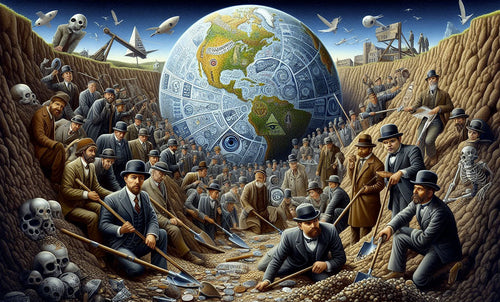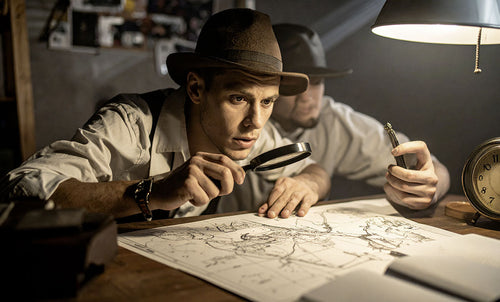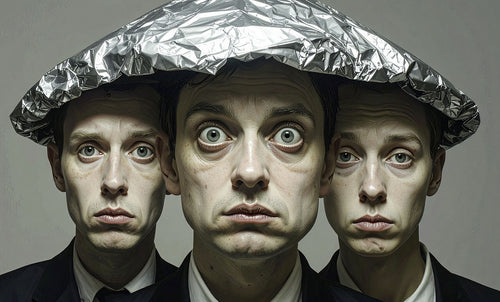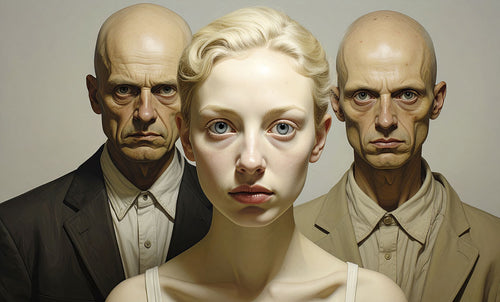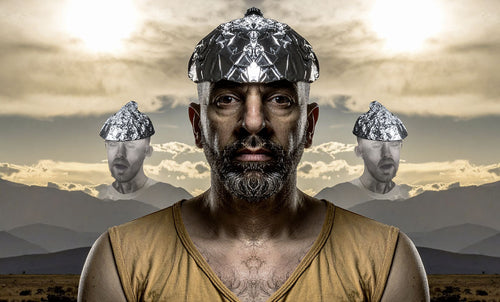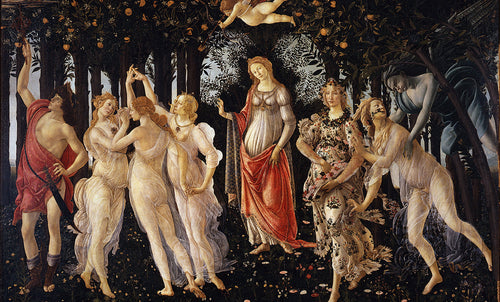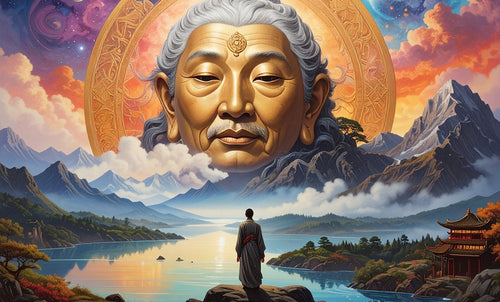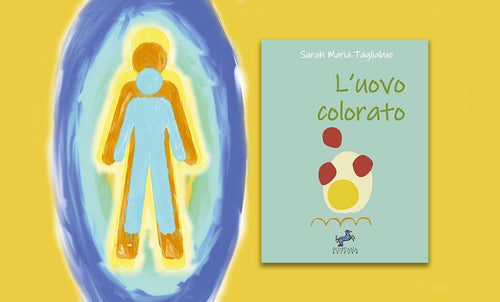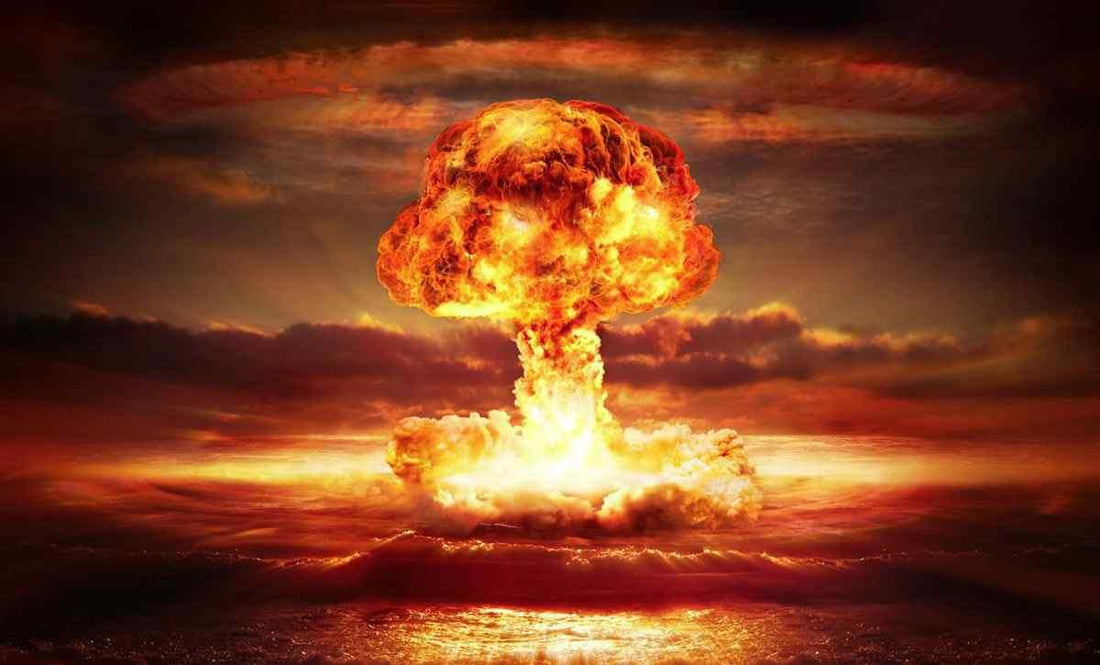
Thinking Green, or, if you're paranoid, you're not paranoid enough yet
Marco Bertone
I traveled. By car, when I did real work (the one paid every month, I mean plus commission). Every now and then I would see half-finished houses from the window, and strange billboards, and I discovered that the countryside has the same dreams as the city,
the same hardware stores, the same sex shops, the same fortune tellers, the same snacks with smiling mothers, the same signs for LPG for cars, Convenient Financing Very Low Rate, Classic Respectful Funerals (with all the paraphernalia of flying seagulls, books that open, no formaldehyde) and Discrete Marital Investigations (no Tom Ponzi, not anymore, just great technological efficiency and confidentiality). But what fascinates me are the shopping centers in the countryside, whether it's the Langhe or Abruzzo. Like ships adrift, like thirsty drunkards in front of the slot machines at the Bingo Palace, I see millions of families crowding for a dress or a cell phone, while obese children slobber ice cream, escalator muzak at full blast, a shoot of sushi bar sound that is more than truly exotic, imperceptibly annoying like a Vivaldi in MIDI format, unleashed on the Grande Ipercentro Shopping Outlet in Vattelapesca… near some roundabout that manifests itself with its set of vats from the village social winery, or agricultural tools of proud work, or versions in gray marble of a stylized Stonehenge, if the local sculptor has received the applause of a compassionate councilor. Thus, among fields of sunflowers burned by the sun, for a moment some structure in the middle of the roadway imposes itself on me as if it were my Statue of Liberty, my Pietà, my David, majestic like Manuela Arcuri's monument in Porto Cesareo or Prezzemolo's proud camp at Gardaland.
This is my Italy, the place that was able to cradle the Montedison mega-bribe and the Capitoline Museums, under the scorching sun that shines on the temples of Pompeii as well as on the Grande Raccordo Anulare link road, a place where I can see Bernini fountains and daring building speculations on the shoreline. A place of contradictions like me.
And it is here that, in a mixture of amazement and melancholy, I see what it means to be on the outskirts of the Empire, imagining that one day all of this could explode, or be invaded, or simply dissolve into the dust of time. The fear of devastation is a trait of conspiracy paranoia. It is nice to be alive, but it is not if you know that someone is watching you, or taking away your air, whether it is the government with its taxes, the grays from Zeta Reticuli who want to feed on us and perhaps kidnap us, the terrorists who shoot in the crowd.
To deal with the crisis we have been experiencing for several decades means to push ourselves wearily onto the terrain of the most inconsistent ecological rhetoric unless we want to clarify the basic nature of the crisis.
At times, we analyze a single portion of our effort: we define it as a crisis of values, or a social crisis, an economic crisis, a political crisis due to the ruling classes that do not do what we would like or that perhaps we do not even know.
But the real crisis includes all of this because instead of being a cause it is a result of a development model whose identification as the main problem is not only the aim of the analysis, but also the therapy.
A date that will remain etched in my memory is May 23, 2007, when for the first time since Homo Sapiens can remember, the percentage of world citizens exceeded that of country people, because it seems to me that the future could be an enormous banlieue, even if Zurich or Copenhagen will always remain unreachable in the rankings of the most trendy cities for Monocle and if they try to make this place a smart city of our own.
The world is beautiful enough to induce a poignant melancholy and ugly enough to make you want to close your eyes like you did as a child and hope that once you reopen them, the evil will magically be gone. But then you know with the delusional lucid rationality of the adult that it is all true.
The end of my world was not the Twin Towers or when someone dear to me died, or when my team was relegated to Serie B, but when I was nine years old and I saw a cover of a well-known magazine that illustrated what the world would be like due to desertification. Those were the years of the energy crisis, of car-free Sundays, of ecological awareness.
That illustration disturbed me. Not even Hyeronimus Bosch or Yves Tanguy would have constructed a panorama of such spectral desolation. Every joy I have tasted since then has seemed to me a way of distancing myself from the entropy of that terrifying calamity, and every personal catastrophe (broken love affairs, layoffs, lost work orders, bereavements, accidents, serious illnesses of relatives and friends) a byproduct of that fearful dimension, a harbinger of a total abyss that would swallow us up, a whirlpool in which I would perhaps encounter evil and alien deities worthy of a Lovecraft story.
The idea that the world could end up becoming a wasteland without water and that in this infinite Grand Canyon we would encounter our fellow human beings who are increasingly gaunt and cadaverous has been nourished from time to time by widespread alarms about the end of resources, about wars for water, about the laments of Vandana Shiva, Luca Mercalli and Rifkin, passing through the alchemies of a more or less happy degrowth and by the bitter considerations on climate change, which soon end up on page 18 of any newspaper, after the reports on the children of the Royal Family and the interviews with famous chefs.
It is the disastrous but understandable reaction of public opinion, which prefers to know that everything is normal rather than worry about the impending crisis. Anyway, we keep saying, we can't do anything about it. No, it would be too energy-intensive to think of another way of producing, using resources, distributing them and starting to be truly, beyond the empty proclamations, green. Even if this means condemning ourselves to decline, and then extinction, which we can always exorcise by blaming the bad guys of the moment or the inevitability of capitalism, which has already mutated into something else. A clever cartoon by Walt Kelly showed, on a scrapyard, the witty Pogo disconsolately saying to his friend Wally: "We have met the enemy. And the enemy is us."
To avoid finding out all this, let's dance on the Titanic, and ask the little orchestra made up of politicians and journalists to turn up the volume.
However, I do not know, and no one can know, whether it will all end with a nuclear explosion, or with an inexhaustible succession of random cataclysms, while seditious acts of stepmother Nature, if she exists, will submerge the spires of skyscrapers or with the powerful destruction of the order provisionally called "consumer civilization" (an oxymoron). In a distant future, far beyond the human race that will have crossed for some time a dark marginal planet like the Earth, swallowed by the deep Erebus, even the galaxies will be sucked in by black holes of unfathomable and hoarse lazy splendor. The glories and conquests of our so little sensible headmasters will be only yellowed almanac pages and then dispersed in an impassive dust in the wind that, it too, will disappear without a living soul to remember them. At the end of time, not even the cockroach that escaped the bomb that will decimate the vain cities built by our civilizations will have won. Only that illusory dimension that we call Time, which in turn will cease to exist with the final collapse of a universe. And you and I much sooner. I want it to be known that all this is somehow reassuring for those, like me, who were born in another century. Not for the young, anyway. But then again, they have always lost, victims of the inconsistent but heavy idea of past generations that only today exists and not the future of the people who will have to put up with our pathetic anti-ecological errors.
Marco Bertone

